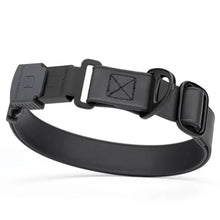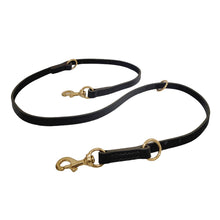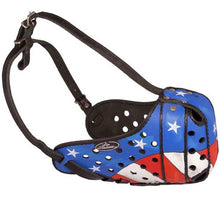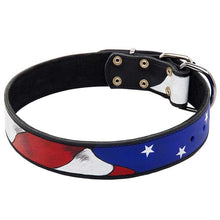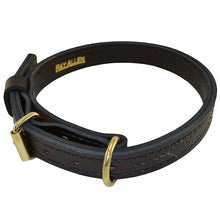The Role Of Diet In Managing German Shepherd Skin Conditions Nutritional Advice For Maintaining Healthy Skin And Coat

The condition of your German shepherd’s skin and coat can be a reflection of their overall health. A radiant coat and clear, healthy skin are good indicators of their overall vitality.
Skin and coat problems may be a signal that your dog could be suffering from an underlying health problem. Since the skin is the largest organ in the body, it needs to be healthy and well cared for.
Along with keeping an eye on the condition of your German shepherd’s skin, their coat needs year-round grooming. Both the skin coat provides dogs with a barrier that protects them from extremal elements and is essential to their health.

If you notice unusual changes in your dog’s skin and coat, it may be a good idea to see your vet since skin and coat problems can indicate a bacterial or fungal infection, dermatitis, an autoimmune condition, and more.
Nutrition is vital for the skin and coat of dogs. Their skin stores nutrients, such as collagen, enzymes, proteins, and amino acids. Meanwhile, their coat is made up of protein. 35% of their protein intake is used to maintain their skin and coat. 95% of the fur is made up of protein.
Along with protein, fatty acids, linoleic acid, vitamins A, B, and E, zinc, copper, selenium, and manganese are found in the skin. The precursors that convert to vitamin D in the sunlight are also found in the skin.

Here are some tips to maintain their healthy skin and coat:
Feed a Healthy Diet
Nutritious food is the foundation for your pet’s overall health and is very important for their skin and coat. No matter what type of food you feed your dog (raw, fresh cooked, wet, or dry), it needs to be balanced to ensure there are no nutritional deficiencies.
A healthy diet should meet or exceed AAFCO standards for your dog’s size and life stage so that you ensure it contains adequate protein, vitamins, minerals, omega-3 fatty acids, and more. Too much or too little of these nutrients can be detrimental to your dog and also contribute to skin and coat problems. You don’t need to add vitamins when feeding a healthy diet unless prescribed by your vet.

How vitamins help the skin and coat:
A-skin repair and growth
C-helps heal wounds
E-protects skin cells
Biotin-aids the body in utilizing protein
Copper-tissue and protein synthesis
Riboflavin-helps metabolize fat and protein
Zinc-helps the body metabolize fat and protein
Omega-3 Fatty Acids
Omega-3 fatty acids can help keep your dog’s skin and coat healthy and also fight inflammation. They boost the immune system and are also good for the heart.
Omega-3s are polyunsaturated fats found in animals and plants. There are three types, EPA (eicosapentaenoic acids), DHA (docosahexaenoic acids), and ALA (alpha-linolenic acids). ALA comes from plants and EPA and DHA come from fish.

The oil in omega-3 fatty acids helps condition the skin and coat. It provides moisture that helps protect against dry, itchy skin. It can also help prevent allergic dermatitis by protecting the skin barrier.
Some of the best sources of omega-3s include sardines, mackerel, trout, and krill. If your dog is overweight or does better on lower fat, white fish such as cod is a good choice. There are several great brands of omega-3 oils on the market. When introducing oil, be sure to start with a small dose and slowly increase while monitoring for stomach upset and diarrhea.
Omega-6 Fatty Acids
The Omega-6 fatty acids known as linoleic and arachidonic acids are essential for skin and coat health and immune system function. Omega 6 fatty acids are found in vegetable oils such as sunflower, corn, safflower, canola/rapeseed, and soybean oils. Chicken and other animal fats are also a good source and are found in dog food.

Treats and Toppers
To help keep your dog’s skin and coat healthy, you can add treats and toppers to their diet. Treats and toppers shouldn’t make up more than 10% of their daily calories. Some healthy snack ideas that you probably have in your kitchen include:
Eggs
Eggs are packed with protein and easy to digest. They contain lutein, zinc, biotin, A and B vitamins.
Oats
Oats are a great source of fiber that contains potassium, phosphorus, calcium, magnesium, B vitamins, and iron.
Salmon/fish
Cooked fish is an excellent source of Omega 3s but it also provides selenium, both of which stabilize the balance of collagen and minerals in bones and tissue.

Chicken
Chicken seems so ordinary but it is an excellent source of protein and Omega-3 fatty acids.
Sweet potatoes
Sweet potatoes contain vitamin A, vitamin E, beta-carotene, calcium, iron, folate, potassium, copper and thiamine. The vitamin C in sweet potatoes helps accelerate healing and support collagen production.
As you can see, providing good nutrition is the most important thing you can do for your German shepherd. A high-quality, balanced diet topped with enhancers, and wet, or fresh food can enhance their diet.
Be sure that you don’t unbalance their diet by feeding too many treats or toppers. But, if you want to feed more fresh food, all you have to do is ensure that it is balanced.

If you need help with skin problems, a veterinary nutritionist or your veterinarian can help. Use caution when taking diet advice from well-meaning people who peddle unbalanced recipes and spread misinformation.
You should always take your dog’s skin problems seriously because it can be the first indicator that something is wrong with their health. Meanwhile, a healthy diet, along with their skin and coat, can help protect them from illness.
We hope that this information is helpful. Please feel free to share with your friends.
You might also like: Can Changing How Often A Dog Eats Help Them Live Longer?






